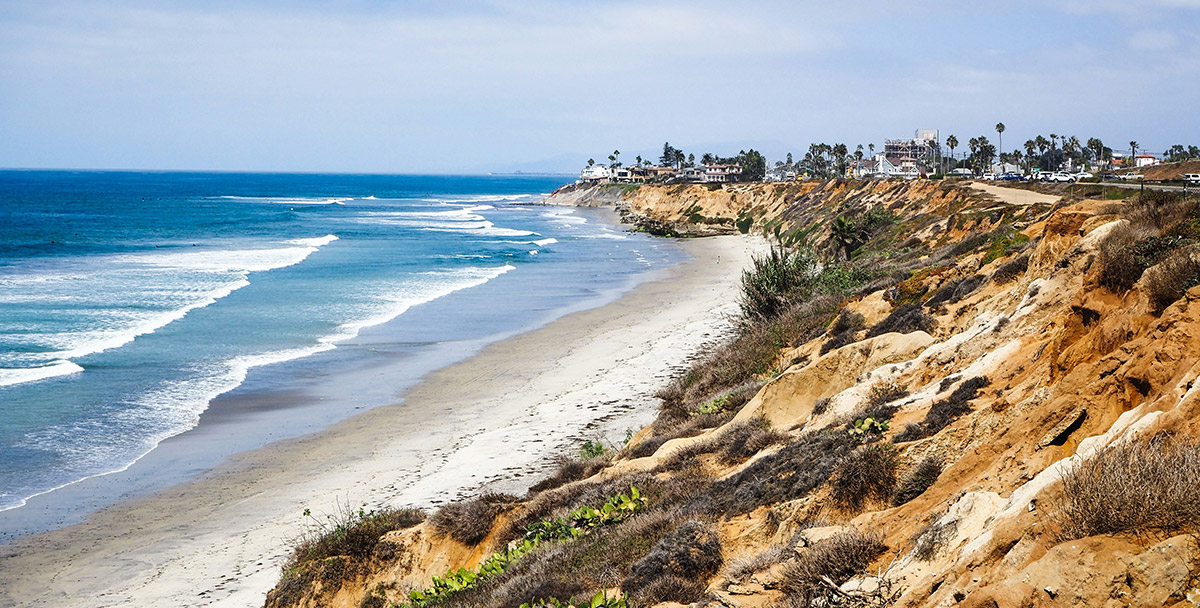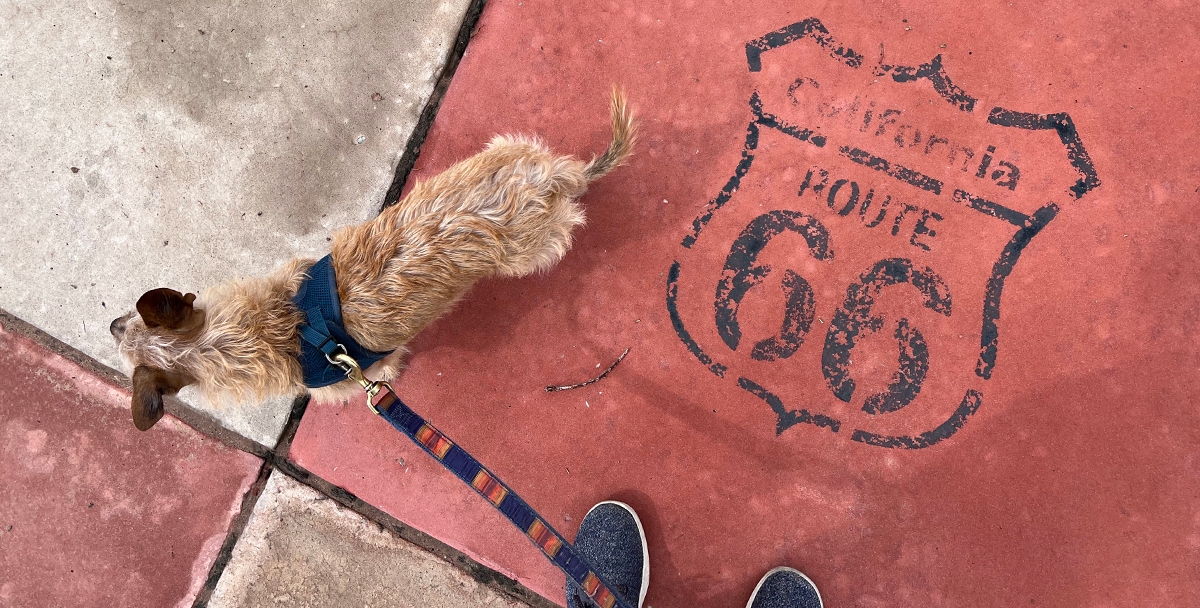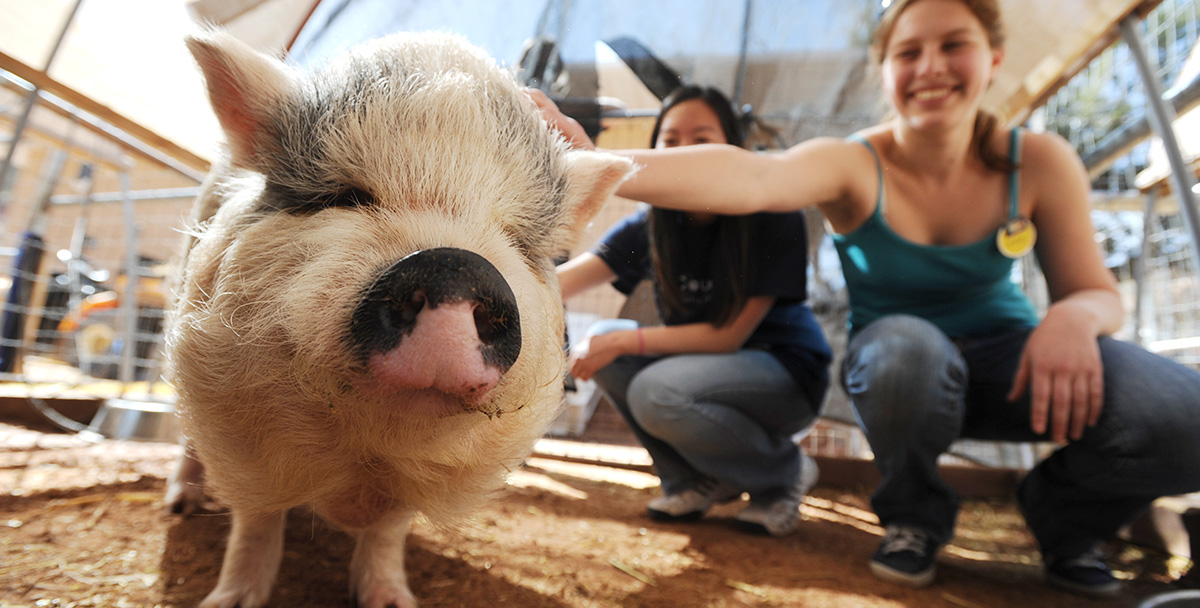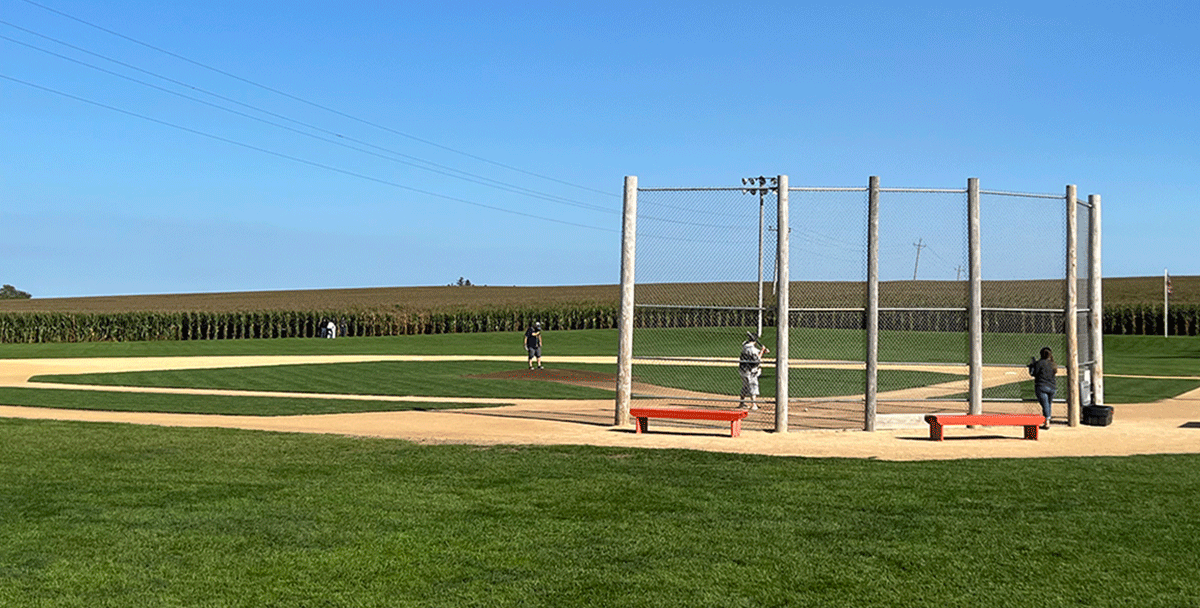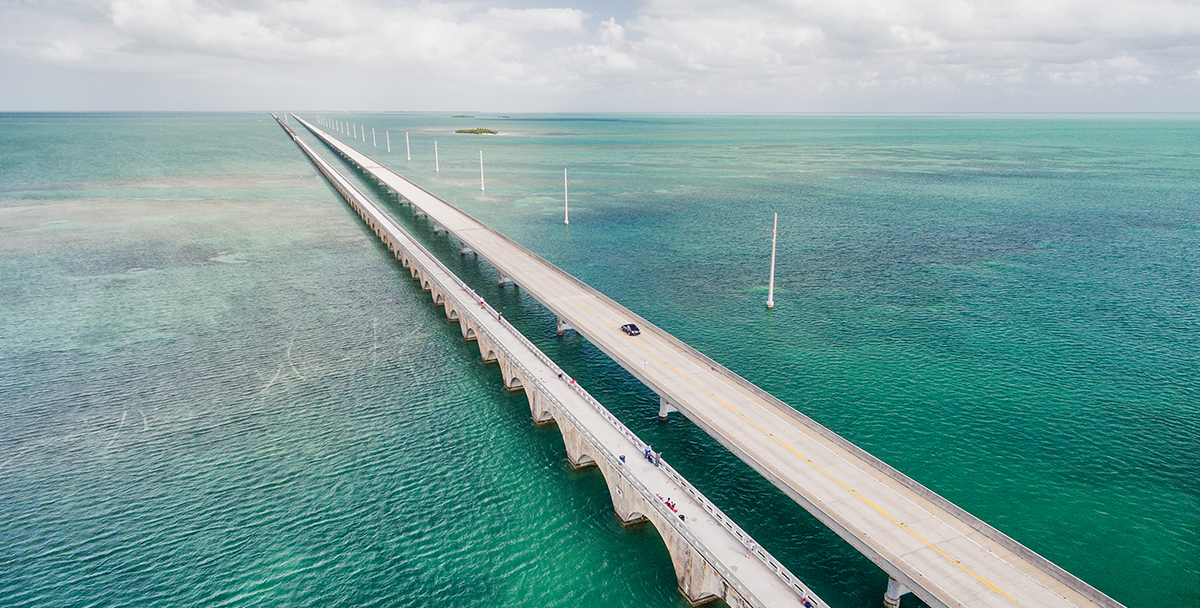Preparing for a camping trip always requires some foresight, but in our current period of state quarantines and new guidelines, “know before you go” is the best possible advice. Before you leave, remember to consult:
- Your own state regulations for travel if you’re camping locally
- State guidelines if you’re going to be camping at a state park
- Municipal guidelines for beaches and parks operated by local government agencies
- Rules and regulations for private campgrounds with the campground operators
Why Camping? Social Distancing in the Great Outdoors
As cities and larger towns wrestle with regulations for travelers during a pandemic, there’s been a significant increase in Americans looking to get away from the crowds and maintain much greater than 6-foot social distancing out in the woods.
North American Camping and the Effects of COVID-19, a report using data collected between April 27-30, 2020, found that “as more people search for safe, affordable vacation options closer to home due to the COVID-19 pandemic, it’s anticipated that the interest in camping will continue to grow at an accelerated rate.” According to the report, which was sponsored by Kampgrounds of America®, pre-COVID-19 camping made up about 11% of all leisure travel. Post-COVID-19, that number will likely shoot up to 16% among all leisure travelers and up to 18% among people who had already considered themselves “campers.”
The largest jump in interest comes from people who have never camped at all. Just 3% of all leisure trips were taken by people who were new to camping prior to COVID-19. That number is expected to increase to 13% after the pandemic.
If you’re new to camping, welcome. We’ve got a great guide to camping with your Subaru. Subaru vehicles – with Symmetrical All-Wheel Drive and features like X-MODE® – are uniquely suited to get you to the remote locations that offer great camping. But even if you’re not a Subaru owner, the guide provides a lot of useful information for new campers.
Along the Way: Considerations for Road Travel
We’ve provided checklists on items you’ll want to have along if you’re overlanding to your campsite or if you happen to be heading out in the winter months, and this is a checklist of items to think about when you’re on the road now. Be especially mindful of these items if you’re crossing state lines where regulations may differ from one state to another:
- Masks: Masks are a must. Not only do they reduce transmission rates of the virus, they’re often required to enter any rest stop or restaurant. Whether you buy one-time use disposable masks or reusable cloth ones, make sure you follow the Centers for Disease Control and Prevention (CDC) guidelines on how to wear them properly. There are a wide variety of mask types available for purchase or to make yourself, so you can be sure to find the type that’s most comfortable for you and your family members.
- Gloves: Recent CDC guidelines state that gloves are only needed when caring for someone sick or cleaning at home. Nevertheless, a pair of disposable gloves is cheap insurance against not only COVID-19 but all the other germs you may run into in a public restroom. Plus, you can wear them for any maintenance or engine checks on your trip to keep your hands from getting dirty.
- Fix-a-Flat®: A can of tire-inflating goop is a good idea whether there’s a pandemic or not. If you end up with a puncture, a can of this stuff can help you get off the highway in a lot less time than waiting for assistance – with no human interaction required. Just get the puncture repaired properly or have the tire replaced soon after you get to a safe location.
- MySubaru App: The MySubaru app is a great tool for understanding the health of your vehicle. The app can provide you with real-time vehicle health notifications,1 so you can act quickly if something goes awry. It can also help unlock your Subaru if you happen to lock the key inside,1,2 without having to call a service tech out and interact face to face.
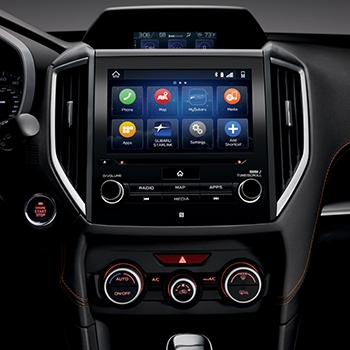
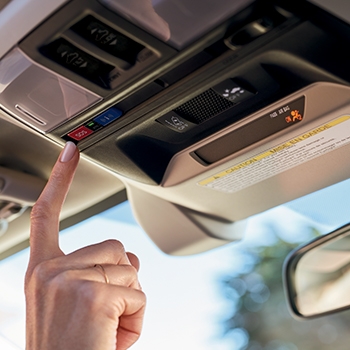
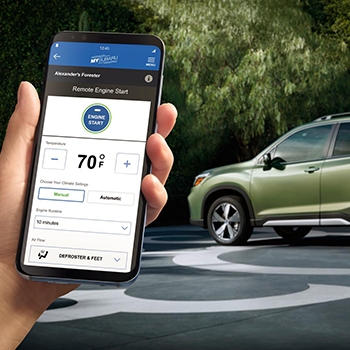
Regulations and Guidelines: What To Think About
With 50 state governments and 19,495 incorporated cities, towns and villages across the country, it’s a good idea – especially in 2020 – to do some advanced planning before you head out on your vacation. One of the nice things about camping prior to COVID-19 was that you could jump in your car, point the vehicle in a direction and manage to find a campsite somewhere without a whole lot of notice. But as states, cities and small towns manage their response to our current situation, it’s important – for both your safety and the safety of the people who live in those communities – to plan ahead.
Below, we have a series of links to the state regulations and guidelines for travelers in all 50 states. But it’s also important to consider the local regulations in your planning.
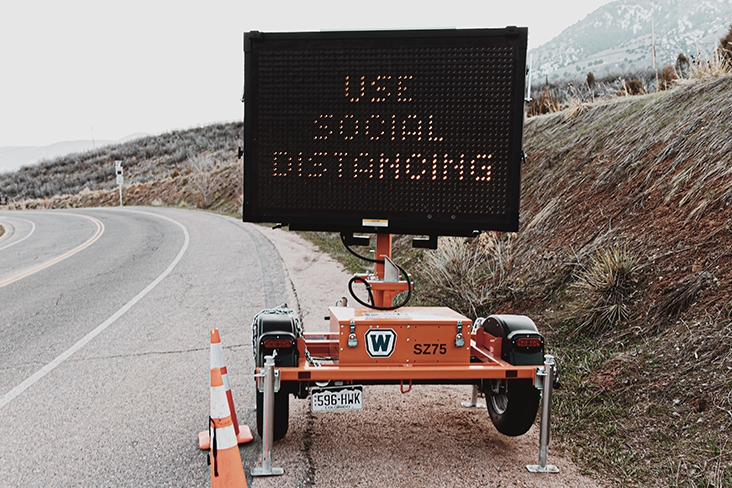
Tourist Travel to Maine: A Case Study
Take Maine – a popular camping destination – as an example, which was aggressive in its response to COVID-19 and has put a number of regulations in place to help the Pine Tree State limit the spread of the virus. Maine had a couple of reasons for acting as quickly and decisively as it did:
- It has the oldest population of any state in the U.S.: 21.2% of Maine’s population is age 65 and over.
- At its southernmost point, it’s less than 65 miles from the city of Boston, Massachusetts, which was one of the states hit the hardest during the early months of the pandemic. It’s also within an easy day’s drive of New York, New Jersey and Connecticut, all of which fought the pandemic early on.
Prior to July 1, Governor Janet Mills required that visitors to the state self-quarantine for 14 days, no exceptions. That meant that anyone visiting for a long weekend was going to be stuck in a hotel room their entire trip. On June 8, though, Gov. Mills announced that visitors – with the exception of residents from New Hampshire and Vermont – could either self-quarantine for 14 days or certify that they had received a negative result on a COVID-19 test, which would allow visitors to avoid the two-week isolation period. That requirement was lifted for visitors from New York, New Jersey and Connecticut early in July, but residents from the remaining states, including Massachusetts and Rhode Island, still need to comply.
For campers from states without an exemption, here’s what the process looks like:
- Before going to Maine, campers need to complete a Certificate of Compliance for Maine Visitors. That form is available via the link, but if you’ve made reservations, the campground will usually send one along via email. This form certifies that you will either comply with the 14-day quarantine or have a negative test within 72 hours of the start of your visit.
- If you plan on getting tested before your camping trip, you can either do it by finding a test site locally or you can visit a test site in Maine that provides a result in as fast as 15 minutes. The most convenient option for people coming from the south is the drive-thru facility administered by York Hospital at York Walk-In Care, 343 U.S. Route 1, York, Maine. Note that it requires a reservation, but the test only costs $25 with no referral or co-pays for most insurance companies.
- When you arrive at your campsite, the campsite operator will ask for the Certificate of Compliance. They won’t ask for your test results. You would be required to present those to the state of Maine, if requested.
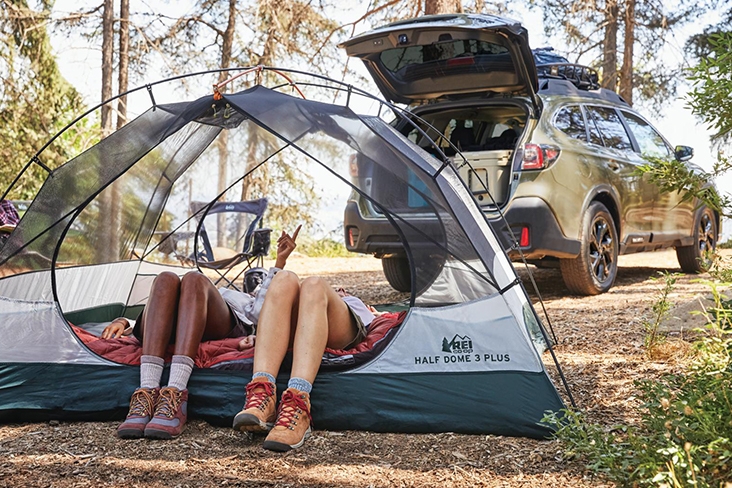
Know Before You Go
The Maine case study illustrates that it’s critical to understand a state’s travel requirements before you’ve decided to visit, especially if you’re from the Northeast.
But Maine is just an example. As the spread of COVID-19 ebbs and flows across the country, states are enacting quarantines almost on a daily basis. For example, if you’re traveling to New York, New Jersey or Connecticut from Alabama, Arizona, Arkansas, California, Delaware, Florida, Georgia, Idaho, Iowa, Kansas, Louisiana, Mississippi, Nevada, North Carolina, Oklahoma, South Carolina, Tennessee, Texas and Utah, you’re now required to quarantine for 14 days.
The best way for campers to understand the requirements is to check with the state agencies that advise travelers on any potential restrictions.
The restrictions on activities at a state-operated campground may be significantly different than the local requirements for private campgrounds, however, so be sure to visit the town websites as well as contacting the operators of private campgrounds in the state you’re planning to visit.
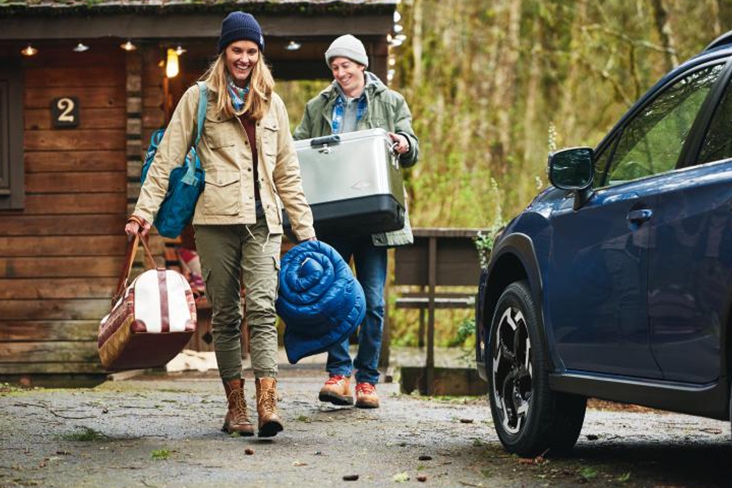
1 Activation with subscription required. Features and availability vary by vehicle and trim level. See your retailer for details.
2 Subscription to STARLINK Safety Plus and Security Plus and MySubaru account are required for Remote Lock & Unlock and Remote Vehicle Locator.

